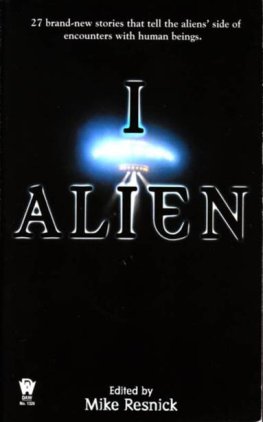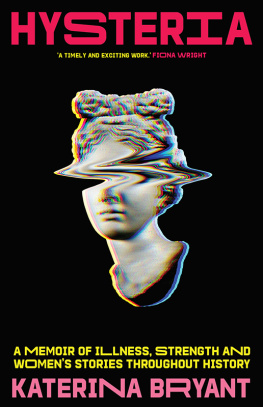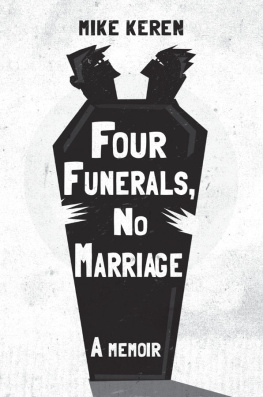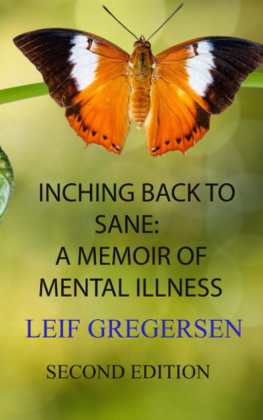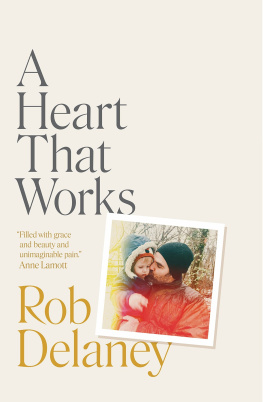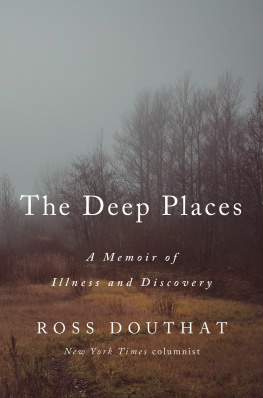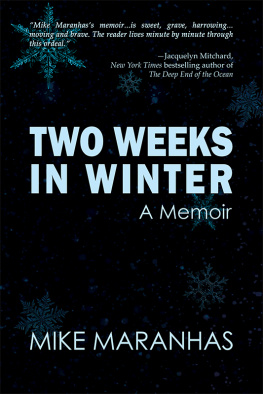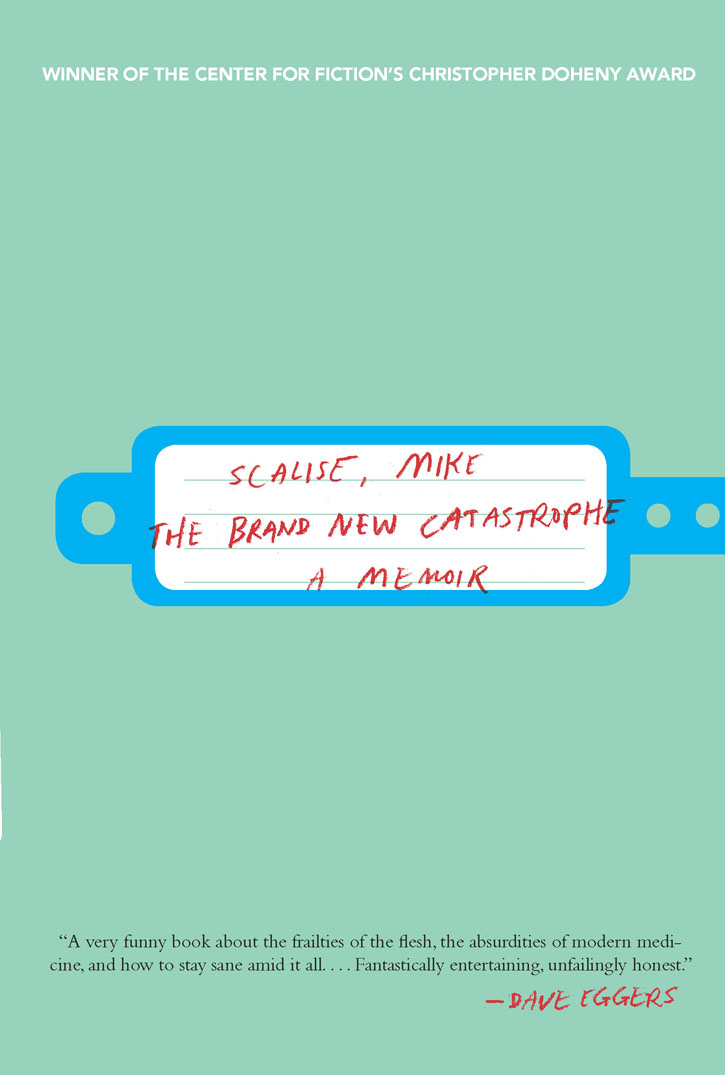Table of Contents
Guide


Copyright 2017 Mike Scalise
This is a work of nonfiction. It is also a work of memory. Ive researched the story to the best of my ability, and Ive rendered the events to the best of my recall. Ive compressed some aspects of the books chronology, and for the sake of anonymity Ive changed the names and details of some friends and all my doctors. Except for one. Youll know which.
Library of Congress Cataloging-in-Publication Data
Names: Scalise, Mike, author.
Title: The brand new catastrophe / Mike Scalise.
Description: Louisville, Ky: Sarabande Books, 2017. | Includes bibliographical references and index.
Identifiers: LCCN 2016014119 (print) | LCCN 2016028132 (ebook) | ISBN 9781941411346
Subjects: LCSH: Scalise, Mike. | Authors, American--Biography. | Scalise, Mike--Health. | Brain--Tumors--Patients--Biography. | Sick--Psychology. | Diseases--Humor. | Medical care--Humor. | Mothers and sons--Biography. | MESH: Acromegaly--Patients--Biography. | BISAC: BIOGRAPHY & AUTOBIOGRAPHY / Medical. | HUMOR / Topic / Marriage & Family. | HISTORY / Social History.
Classification: LCC PS3619.C2547 Z46 2017 (print) | LCC PS3619.C2547 (ebook) | DDC 818/.603--dc23
LC record available at https://lccn.loc.gov/2016014119
Cover design by Oliver Munday.
Interior and exterior design by Kristen Radtke.
This book is printed on acid-free paper.
Sarabande Books is a nonprofit literary organization.

This project is supported in part by an award from the National Endowment for the Arts. The Kentucky Arts Council, the state arts agency, supports Sarabande Books with state tax dollars and federal funding from the National Endowment for the Arts.
For D., T., R., and L.
CONTENTS
You eke out your illness. Youll always be an amateur in your illness. Only you will love it.
Anatole Broyard, Intoxicated by My Illness
T elling a good catastrophe anecdote means becoming a maestro of sympathy. Peoples reactions to these kinds of stories usually involve some defense mechanism: a tilting or nodding of the head, a crinkling of the brow, or the low-toned repetition of words and phrases like wow, holy shit, oh no, sounds horrible, orand this is one to watch out forIm just really glad youre okay.
As the teller of the anecdote, the conductor of an experience, this is the wrong place to be. Any of those responses indicates that youve made yourself pitiable and taken your audience hostage. This is where theyre likely to go on conversational autopilot, or retreat into head-nodding while they try to figure out what role to play in your I had an awful thing happen to me story. The trick to keeping them engaged is to focus on the oddities and ironies that would seem incredible and ridiculous in any context, not just that of your disaster.
For instance: The name of the doctor who discovered my brain tumor?
Sunshine.
Hed heard all the jokes. Of course he had. We met during hour six of an ER stay in Brooklyn, at a training hospital affiliated with an unremarkable university. Id admitted myself for what I thought was a migrainean undodgeable, wavelike cloud of pain that for the past nine hours had swished slowly to all ends of my brain. Sunshine was young and square-jawed, and introduced himself the way I imagined he greeted every new face, with a stiff handshake and a pursed toneIm Dr. Sunshinethat braced him like a boxer for every quip that swung back at him. Here was all I could think of:
Get the fuck out of here.
He held the results of my CT scan, taken hours earlier.
Theres a mass on your brain, he said, then curled his forefinger and thumb into a circle that in any other context would mean A-OK. Well get a proper MRI first thing tomorrow, he told me. Well know more then.
Is it the C-word? I asked.
Dont know yet.
Am I going to die?
Dont know that yet either.
I dont have insurance, I said.
Lets not worry about that right now, he told me.
A hard surge tumbled along the banks of my skull.
Look: just get it out, I told him. Go grab a melon baller, and get it. The fuck. Out.
Sunshine called my parents in Pittsburgh and my girlfriend Loren, who was then on a trip to Los Angeles. He colluded with the hospital administrative staff to verify the bogus insurance arrangement my father quickly set up for me through my familys Pittsburgh-based heating and air-conditioning company. Then Sunshine admitted me upstairs, to a dimly lit floor with rounded walls. Patients beds circled the admin desk like spokes, at least fifteen of them, separated only by thin, paperlike curtains.
There were pockets of quiet throughout the night, but eventually we seized on one anothers discomfort and swung into a chorus of bickering that turned our nurses raw and curt and impatient. Any movement triggered ripples in my head pain, so I kept still and awake, rejecting all care that wasnt direct pain relief.
That included hygiene. In the morning, just before my MRI, a nurse appeared holding a small plastic stick loaded with toothpasteno bristlesand pushed it at my face.
Sir. You must brush your teeth, she said. The smell from your mouth is very unpleasant.
Notice how the focus here is not on the vast pain that commandeered my head that night. Pain is a socially competitive thing, and too much emphasis on it can cue people to recall their own bouts with pain, or compare theirs to yours. Take, for instance, my mother, who walked, worry-shaken, into that Brooklyn training hospital a veteran of her own burgeoning string of catastrophes, all of them heart-related. By age fifty shed undergone two angioplasties and a bypass, and had partially lost sight in her left eye due to a blocked artery. Shed perfected the flat, dismissive tone in which shed respond to anyone elses tale of woe, assuring them, in essence: Take it easy, Ive been through worse.
Upon seeing me in that hospital bed, though, raw and clinched from the pain cavorting in my head, my mother thankfully set that tone aside, then looked for other ways to infuse the moment with her expertise. My parents arrived late morning, and I smelled the blend of cigarette smoke and drive-thru coffee that had fueled their night-long drive across Pennsylvanias highways. My fathers hands were deep in the pockets of his cargo shorts. My mother gnawed on a fingernail. I dug into the sweat-ripe jeans on the chair next to my bed, then set the keys to my nearby apartment on the food tray between us. My parents returned an hour later, showered but not rested. My mother was holding a pillow from my bed. These goddamn hospital pillows, she told me. Theyre just glorified dish towels.
Dr. Sunshine had, by now, pushed me off to another doctor named Kalantari, a tall, slump-shouldered surgeon who confessed within minutes of meeting my parents that hed actually done his med school internship in a hospital less than three miles from the house I grew up in, a lowly establishment in a depressed Pittsburgh suburb. That coincidence, that odd, local kinship, could have been whyas his team ran clumsy spinal taps and prepped me for a procedure scheduled for that very nightDr. Kalantari appeared at my bedside, shifting, gripping a manila folder.
Next page

